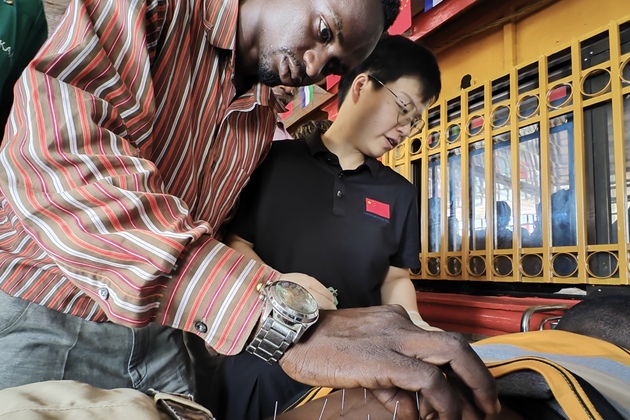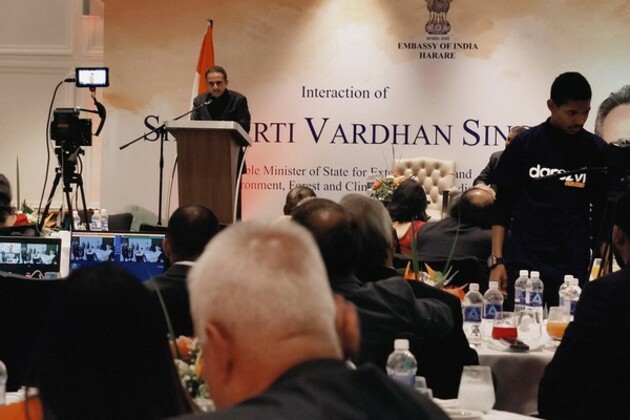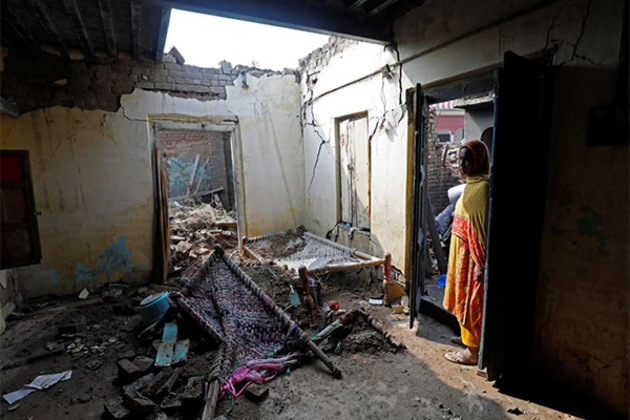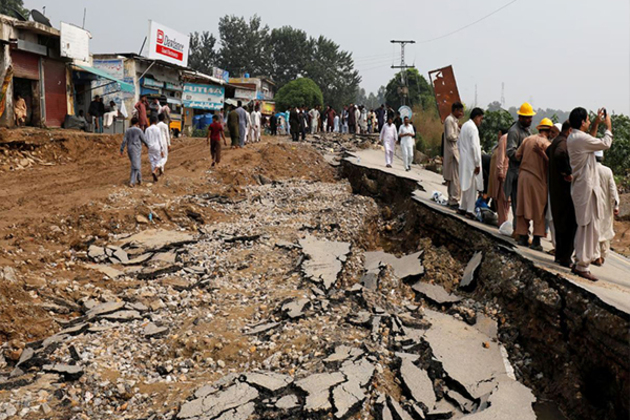Battery swapping stations powered by solar and wind: we show how this could work for electric vehicles in South Africa
The Conversation
29 Jun 2025, 10:23 GMT+10
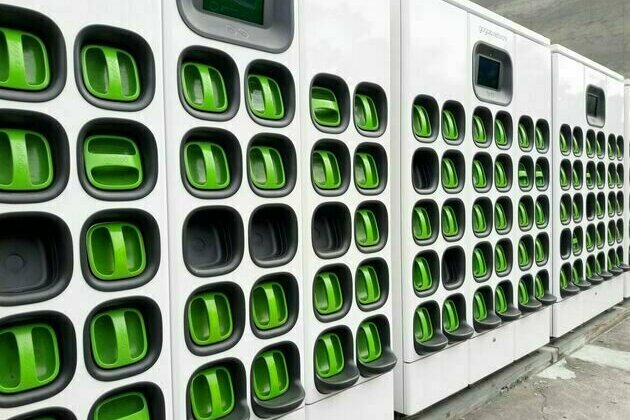
Petrol and diesel vehicles are being phased out globally and replaced with electric vehicles so that countries can meet their commitments to zero human-caused carbon emissions by 2050. But electric vehicles' batteries run down quickly and take a long time to recharge. One solution is battery swapping systems, where depleted batteries can be swapped for fully charged batteries, putting electric vehicle drivers back on the road faster than it would have taken them to fill up with petrol. Lumbumba Taty-Etienne Nyamayoka is a researcher and PhD candidate with the Future Electrical Energy Technology Research Group at the University of the Witwatersrand. His research looked at the best way to set up battery swapping systems powered by solar and wind energy.
Electric vehicle batteries have a limited driving range, depending on the type of vehicle, battery capacity and usage conditions. Their charging time is very slow - several hours to charge at home and longer at a public charging station than it takes to refuel a conventional car. Also, electric vehicle charging stations in South Africa are not as widespread as petrol stations.
The battery performance also decreases with age and use. This means the vehicles can't travel up to 500 kilometres on a single charge, as they can with a new battery, or reach fast speeds. The older the battery, the longer it takes to charge. The batteries are also affected by extreme heat or cold. Thermal management systems that protect against this are expensive.
Read more: Electric cars: swappable batteries could be the way to revive flagging sales
Electric vehicle batteries are expensive. In South Africa, they can cost between R100,000 and R400,000 (US$5,630 to US$22,523), whereas petrol car batteries can cost as little as R3,500 (US$197). Prices are falling but the high costs are still off-putting.
Finally, an electric vehicle battery pack weighs an average of 454kg and takes up between 100 litres and 200 litres of space in a car, depending on the model. This is a problem for smaller cars.
Instead of stopping on a long trip to spend hours charging their car's battery, drivers need only drive up to the swapping station and get a new battery. This is very quick and easy, especially for delivery motorbikes, trucks, buses or taxis that need to be on the road all day. (Battery swapping stations need to keep multiple types and ages of batteries so that motorists can swap batteries for those of the same age and quality.)
Battery swapping stations also help electric vehicle owners because they don't use fast charging methods which generate high heat and place strain on the battery. Instead, the stations charge electric vehicle batteries slowly, off-site. This extends the battery lifespan.
Read more: Electric vehicles in Africa: what's needed to grow the sector
Some battery swapping stations are already established in Africa - mainly for electric motorbikes - in Kenya, Uganda, Rwanda, Nigeria and South Africa, but they exist in larger numbers in China, the US and Taiwan.
In fact, battery swapping stations can help the electric vehicle market grow by giving people confidence that they'll always be able to charge an electric car if they buy one.
Battery swapping stations should be powered by wind and solar renewable energy systems so that motorists are not charging environmentally friendly electric vehicles with electricity produced by burning coal. Just over 74% of South Africa's electricity is currently generated by burning coal.
My research found that a renewable energy system made up of 64 wind turbines and 402 solar photovoltaic panels can power a moderately sized swapping station - one that replaces approximately 50 to 200 electric vehicle batteries daily.
To set one of these up costs just under R2 million (US$112,000). In my case study, this amount covers the total life cycle cost. This includes the initial capital investment, installation, operation and maintenance, and replacement costs over the system's lifetime of 20-25 years. Battery swapping stations of different sizes would cost a different amount.
Read more: Uganda's boda boda bikes are deadly polluters: study models how going electric could save lives
These costs could be recouped by investors within five and a half years, based on projected energy savings and operational revenues from 50-200 swaps per day. After the payback period, the system would generate profit through continued cost savings on electricity, revenue from electric vehicle users, and by earning money from feeding electricity into the grid.
Hybrid wind-solar battery swapping stations with battery storage systems to store the power generated are technically and economically feasible.
Electric vehicle battery swapping stations are necessary from an early planning and infrastructure development perspective. Electric vehicle uptake is still growing, but is gaining momentum in Nigeria, Kenya and South Africa.
For example, major South African courier and trucking companies are starting to convert their truck fleets to electric.
Read more: Charging, not range, is becoming a top concern for electric car drivers
The high number of minibus taxis and buses on South African roads contributes significantly to urban air pollution, especially in densely populated areas. If this market starts using electric vehicles, they'll need battery swapping stations to stay on the road all day.
By starting now, South Africa can build out its electric vehicle ecosystem so that it lines up with the country's energy goals - without overcommitting resources too early, but by making sure it is ready when demand accelerates.
A demonstration project of 64 wind turbines and 402 solar panels should be built. This should be tested over different periods so that we can see how a wind and solar powered battery storage system would perform in different weather conditions.
The government must also do some future projections of the costs of battery storage system parts, their lifespans, and the tariffs that might make them more expensive. This data will help guide investors.
Read more: Is the UK's energy storage growing fast enough?
Advanced forecasting techniques (such as machine learning or time-series models) are needed to predict load demand and renewable generation. This can be used to improve the model.
Policies must be developed to see how tax credits, subsidies and carbon credits could be used to make it cheaper for business to set up battery swapping stations.
Read more: Fossil fuels are still subsidised: G20 could push for the funds to be shifted to cleaner energy
Regulations are also needed to encourage electric vehicle charging stations to be based on hybrid wind and solar renewable energy.
Battery swapping systems do not need to be rolled out nationwide immediately. Instead, a phased approach can focus on places where electric vehicle activity is most concentrated.
 Share
Share
 Tweet
Tweet
 Share
Share
 Flip
Flip
 Email
Email
Watch latest videos
Subscribe and Follow
Get a daily dose of Kenya Star news through our daily email, its complimentary and keeps you fully up to date with world and business news as well.
News RELEASES
Publish news of your business, community or sports group, personnel appointments, major event and more by submitting a news release to Kenya Star.
More InformationAfrica
SectionA Year of Glory: Rohit Sharma expresses gratitude for India's T20 World Cup triumph
New Delhi [India] June 29 (ANI): Indian ODI skipper Rohit Sharma expressed his gratitude as India ended an 11-year-long ICC Trophy...
SIERRA LEONE-FREETOWN-CHINESE MEDICAL TEAM-TCM-TRAINING PROGRAM
(250629) -- FREETOWN, June 29, 2025 (Xinhua) -- A trainee (L) takes hands-on acupuncture practice under the guidance of an expert from...
MoS Kirti Vardhan Singh highlights Indian diaspora's contribution to Zimbabwe's economy
Harare [Zimbabwe], June 29 (ANI): Union Minister of State for External Affairs Kirti Vardhan Singh held talks with the Indian diaspora...
Battery swapping stations powered by solar and wind: we show how this could work for electric vehicles in South Africa
Petrol and diesel vehicles are being phased out globally and replaced with electric vehicles so that countries can meet their commitments...
India's T20 World Cup 2024 Triumph: A year of glory
New Delhi [India] June 29 (ANI): In Barbados, India ended an 11-year-long ICC Trophy drought, beating South Africa by seven runs to...
UAE welcomes signing of peace agreement between Democratic Republic of Congo and Republic of Rwanda
Abu Dhabi [UAE], June 29 (ANI/ WAM): The United Arab Emirates has welcomed the signing of the peace agreement between the Democratic...
World
SectionWestern Sydney raid results in seizure of $25 Million in drugs
SYDNEY, NSW, Australia - , Australian Federal Police (AFP) have shut down a secret drug lab in Sydney's west and seized more than 100kg...
Russia launches fresh attacks on Eastern Ukraine
Moscow [Russia], June 29 (ANI): The much-anticipated peace talks between Russia and Ukraine blew up as the former attempted to gnaw...
Taiwan warns against China's provocations, promotes UNCLOS compliance in South China Sea
Taiwan [Taiwan], June 29 (ANI): Taiwan's Ministry of Foreign Affairs (MoFA) called for dialogue and restraint in resolving disputes...
Third earthquake jolts Pakistan in one day
Islamabad [Pakistan], June 29 (ANI): A third earthquake within 24 hours jolted Pakistan on Sunday, a statement by the National Center...
Iran could rebuild nuclear program within months IAEA chief
You cannot disinvent Tehrans technical and industrial capabilities, Rafael Grossi has said Iran could resume uranium enrichment within...
Magnitude 4.5 Quake Strikes Pakistan
Islamabad [Pakistan], June 29 (ANI): An earthquake of magnitude 4.5 jolted Pakistan on Sunday, a statement by the National Center for...


